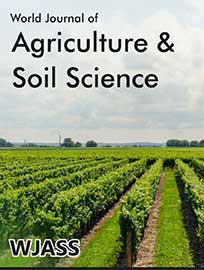 Opinion
Opinion
Iodine Nutrition Knowledge of Food Handlers: A Capricorn and Waterberg District Study, Limpopo Province, South Africa
Mabapa Ngoako Solomon1*, Hlako Seemole Cedrick1 and Mailula Nteseng Rejoice2
1Department of Nutrition, School of Health Science, University of Venda, Thohoyandou, 0950, South Africa
2Department of Health, Nutrition Services, Ekuruleni, Gauteng Province, South Africa
Mabapa Ngoako Solomon, Department of Nutrition, School of Health Science, University of Venda, Thohoyandou, 0950, South Africa.
Received Date: April 01, 2020; Published Date: April 28, 2020
Abstract
Given the public health importance of eliminating iodine deficiency and its consequences, one can assume that consumers are informed and educated about iodine nutrition and iodine deficiency disorders such as impaired mental function, goitre, hypothyroidism, cretinism, retarded physical development and even child mortality [1]. Salt fortification was an intervention initiated by the government to address iodine deficiency disorders but the community has limited information on the salt fortification and its benefits [2]. Intensive implementation activities of monitoring and evaluation of salt fortification have revealed the limited knowledge of how to translate efficacious interventions into effective programs with relevant mechanisms for program monitoring, quality assurance, and impact evaluation to the beneficiaries of the programme [3].
-
Mabapa Ngoako S, Hlako Seemole C, Mailula Nteseng R. Iodine Nutrition Knowledge of Food Handlers: A Capricorn and Waterberg District Study, Limpopo Province, South Africa. World J Agri & Soil Sci. 4(5): 2020. WJASS.MS.ID.000597.
-

This work is licensed under a Creative Commons Attribution-NonCommercial 4.0 International License.






